Stakeholder Management and Corporate Social Responsibility at Unilever
VerifiedAdded on 2023/01/10
|11
|872
|20
Report
AI Summary
This report provides a comprehensive analysis of Unilever's stakeholders and its approach to corporate social responsibility (CSR). It begins with a definition of stakeholders and their importance to a company's operations, emphasizing the impact of various groups, including customers, employees, investors, suppliers, and communities. The report details Unilever's stakeholder engagement strategies, highlighting the significance of each stakeholder group and how the company addresses their needs based on their influence and interest. It explores the role of CSR in maintaining stakeholder engagement and strengthening the brand. Additionally, the report examines the ethical considerations and codes of business principles that guide Unilever's interactions with its stakeholders. The analysis utilizes a stakeholder matrix to prioritize engagement efforts. The conclusion underscores the critical role stakeholders play in organizational survival and growth, emphasizing fair treatment and ethical practices in managing stakeholder relationships.
1 out of 11
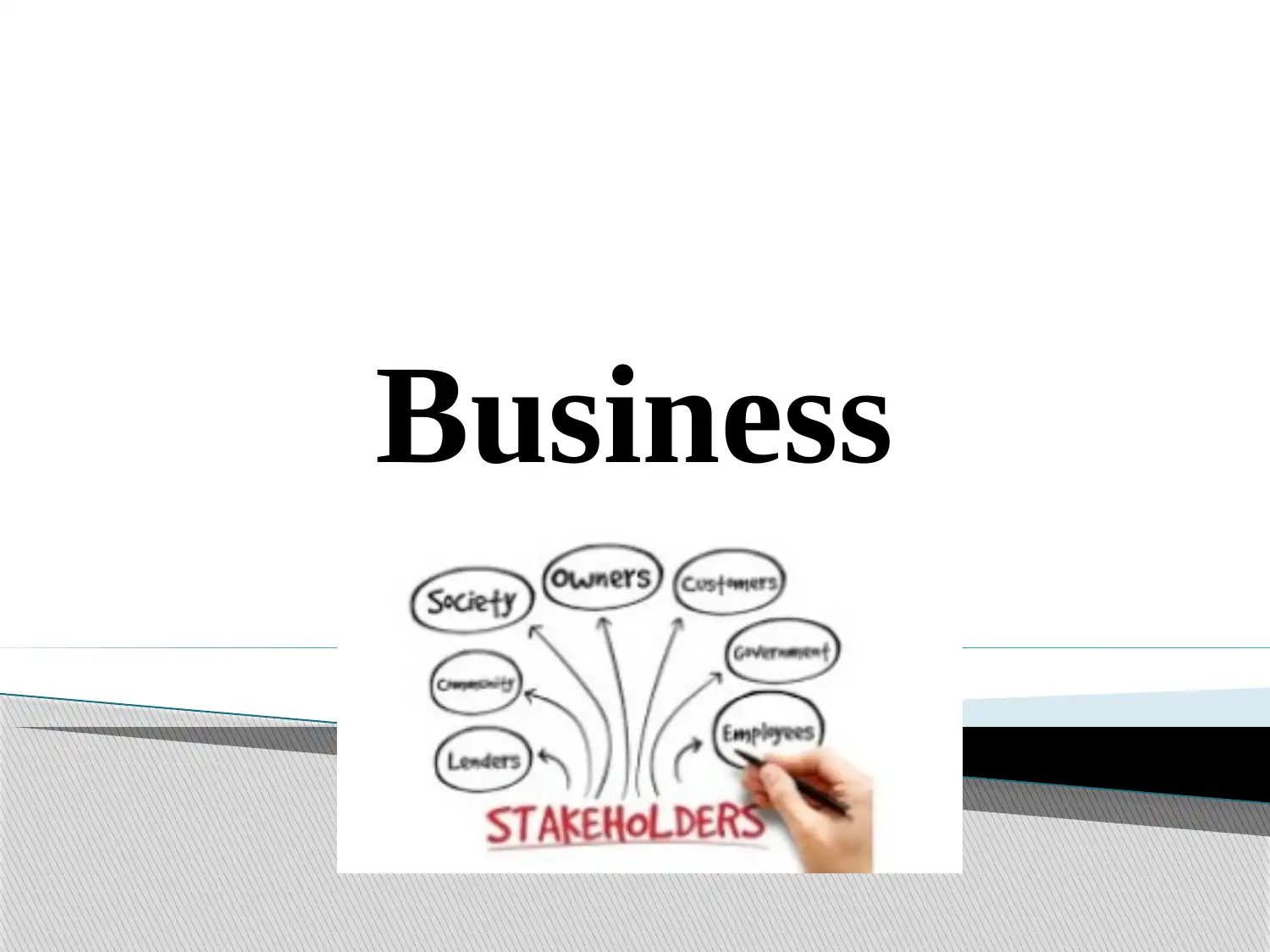
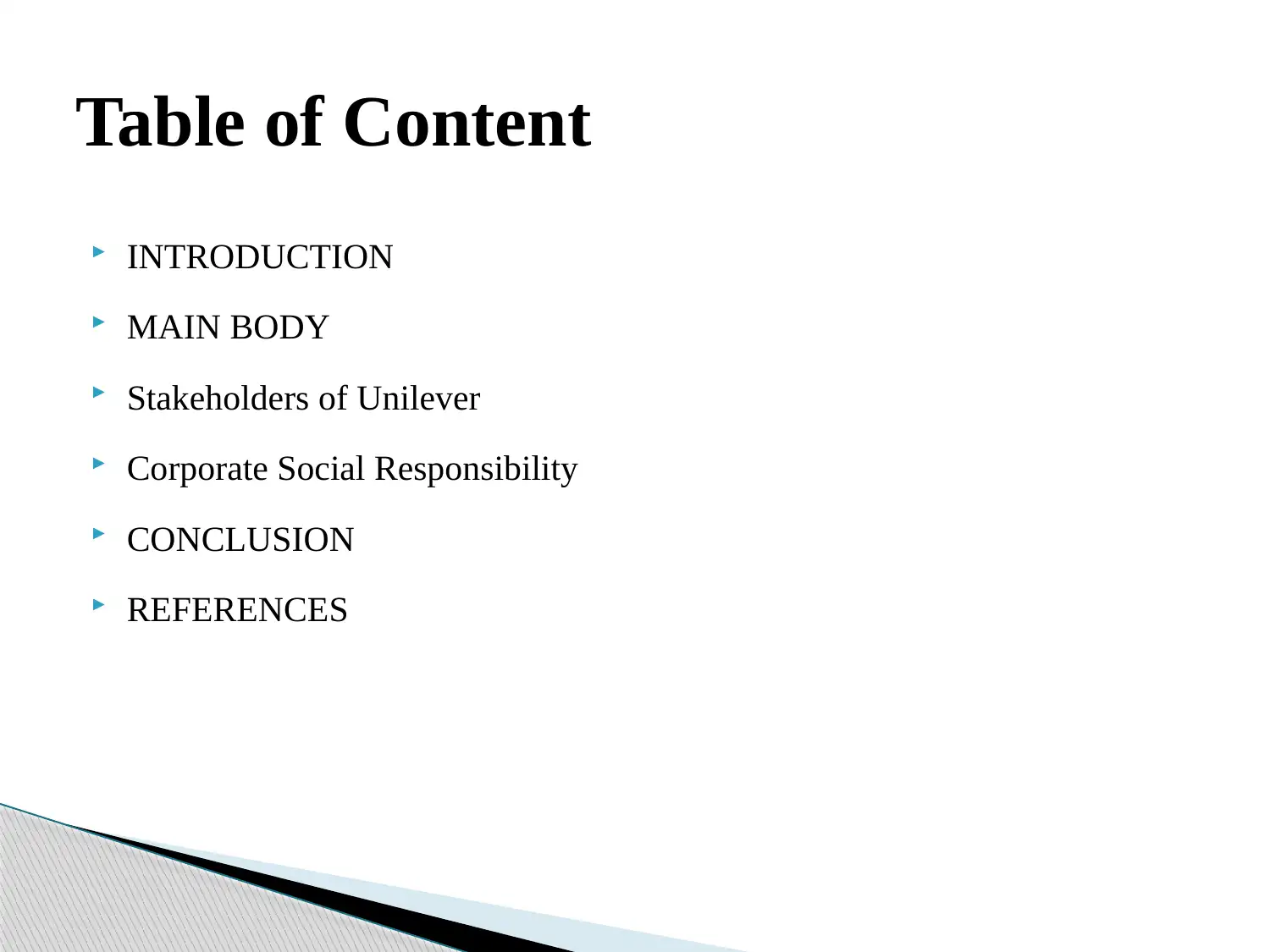
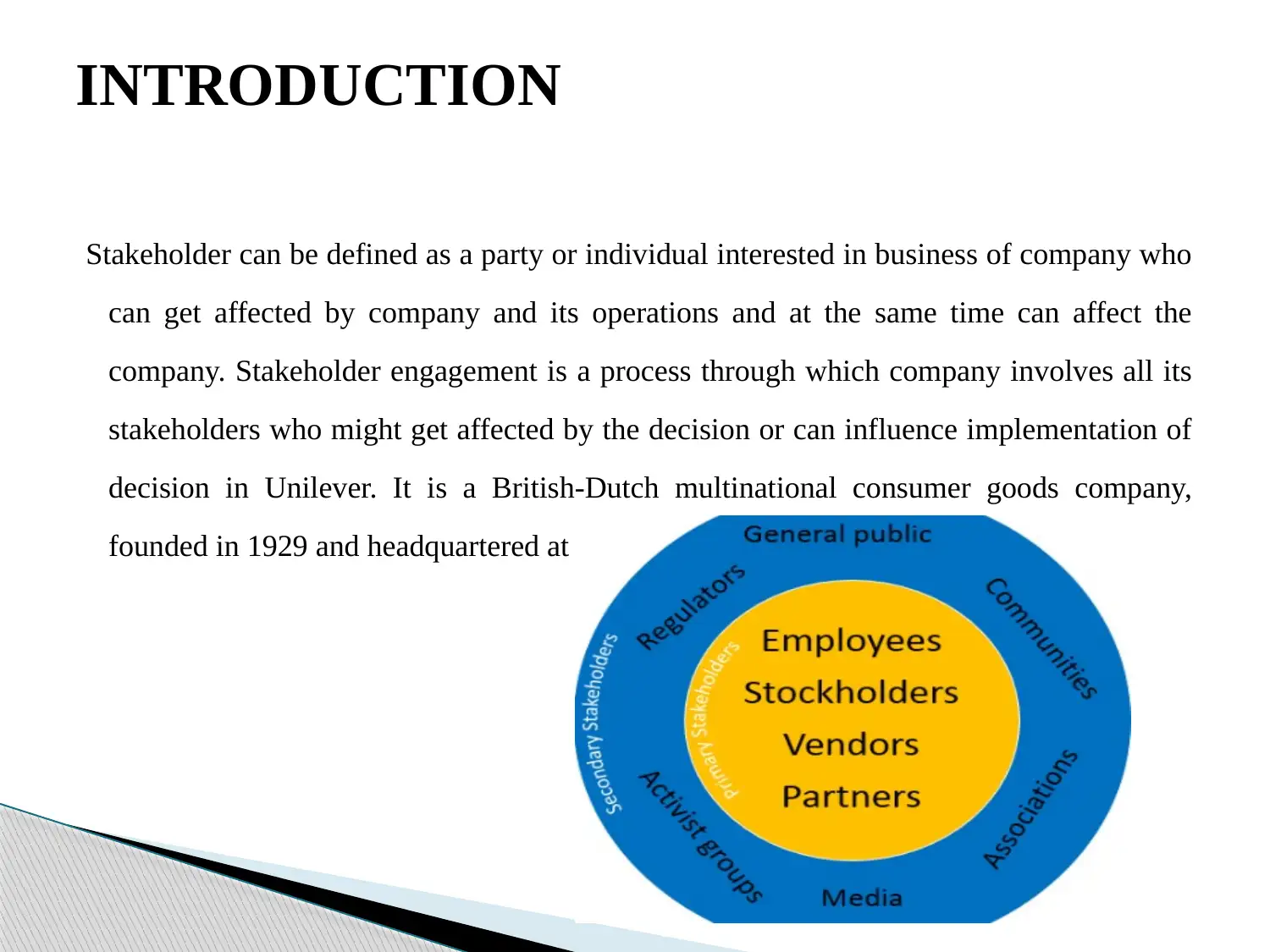

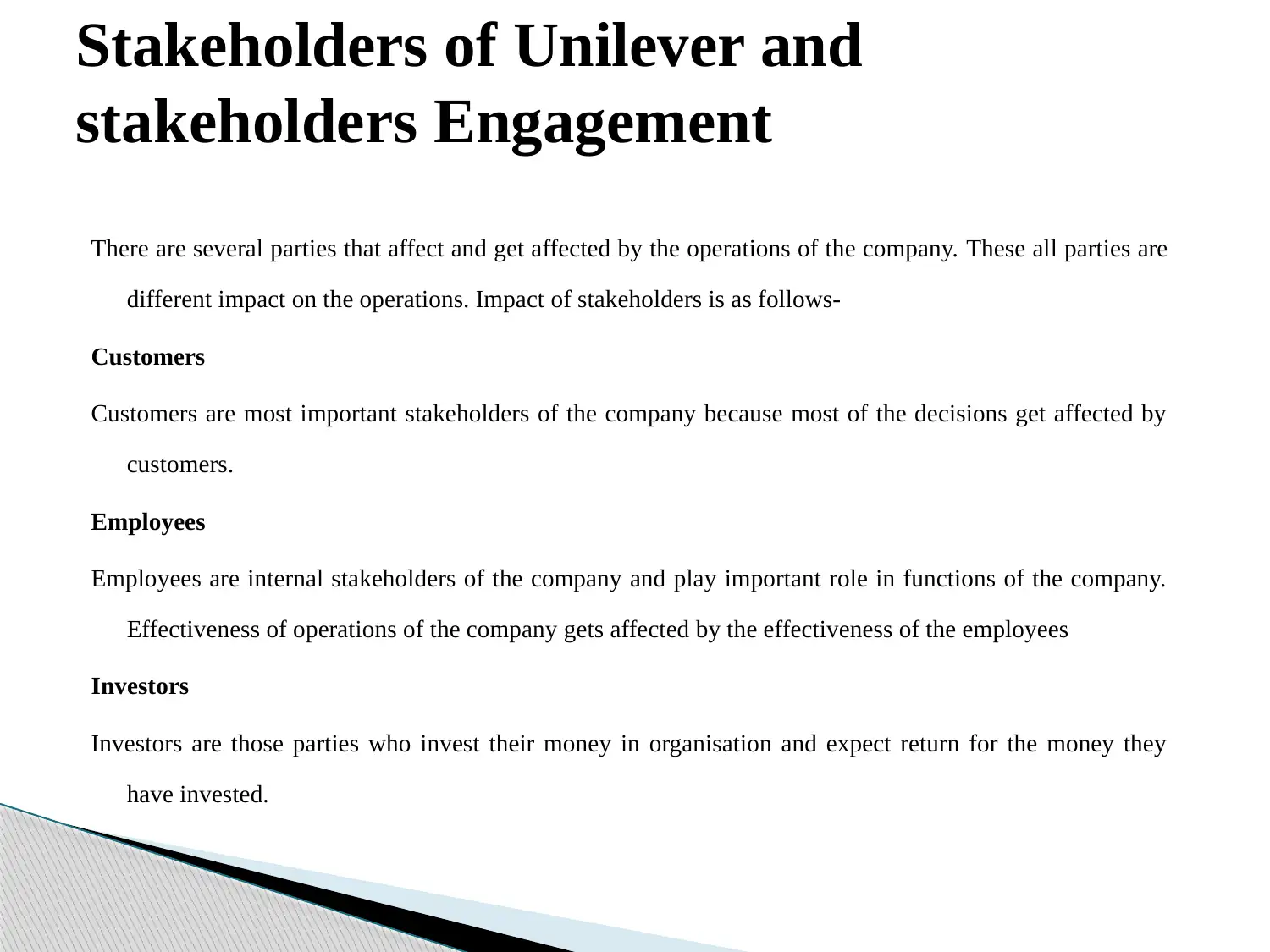
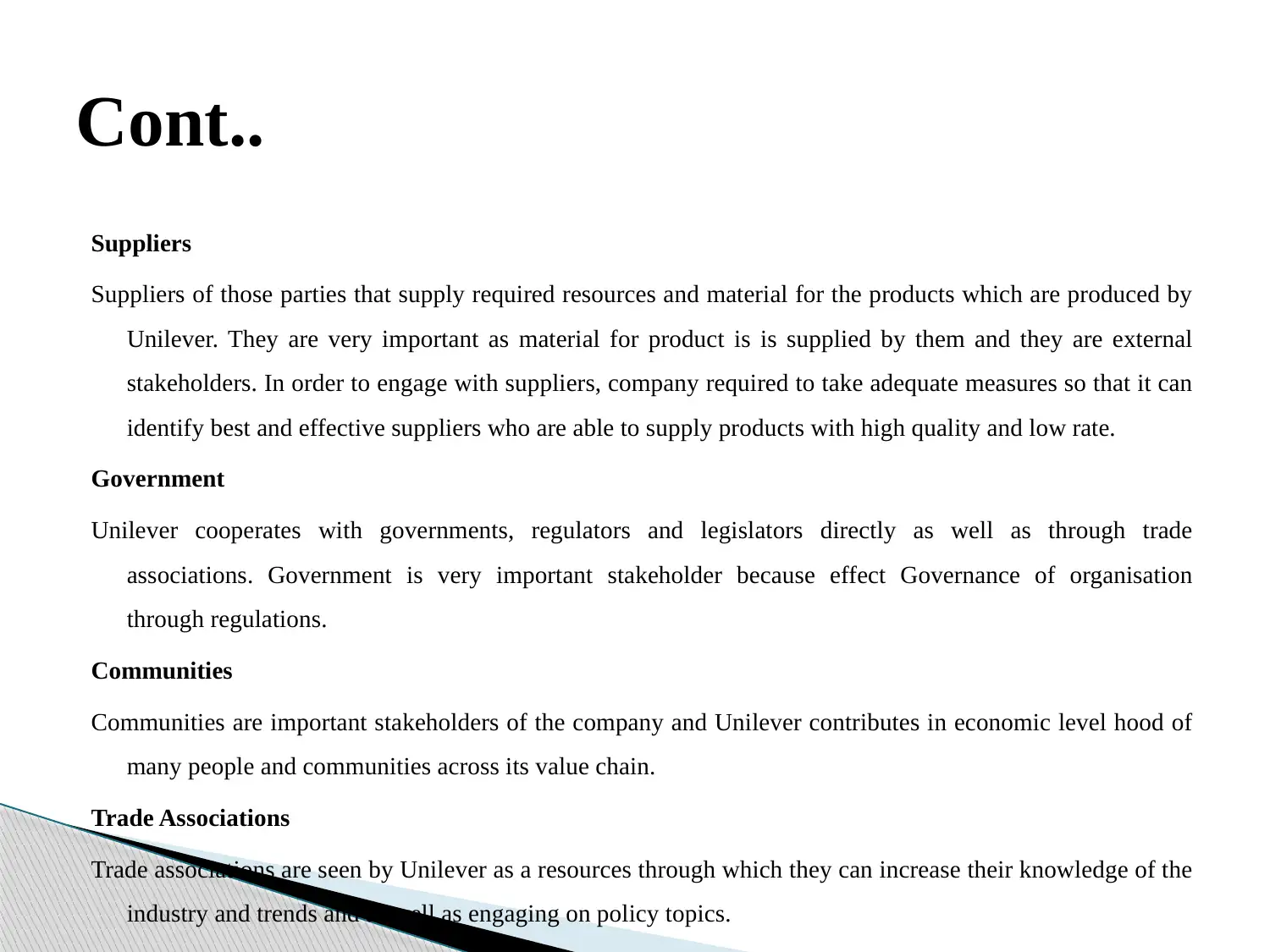
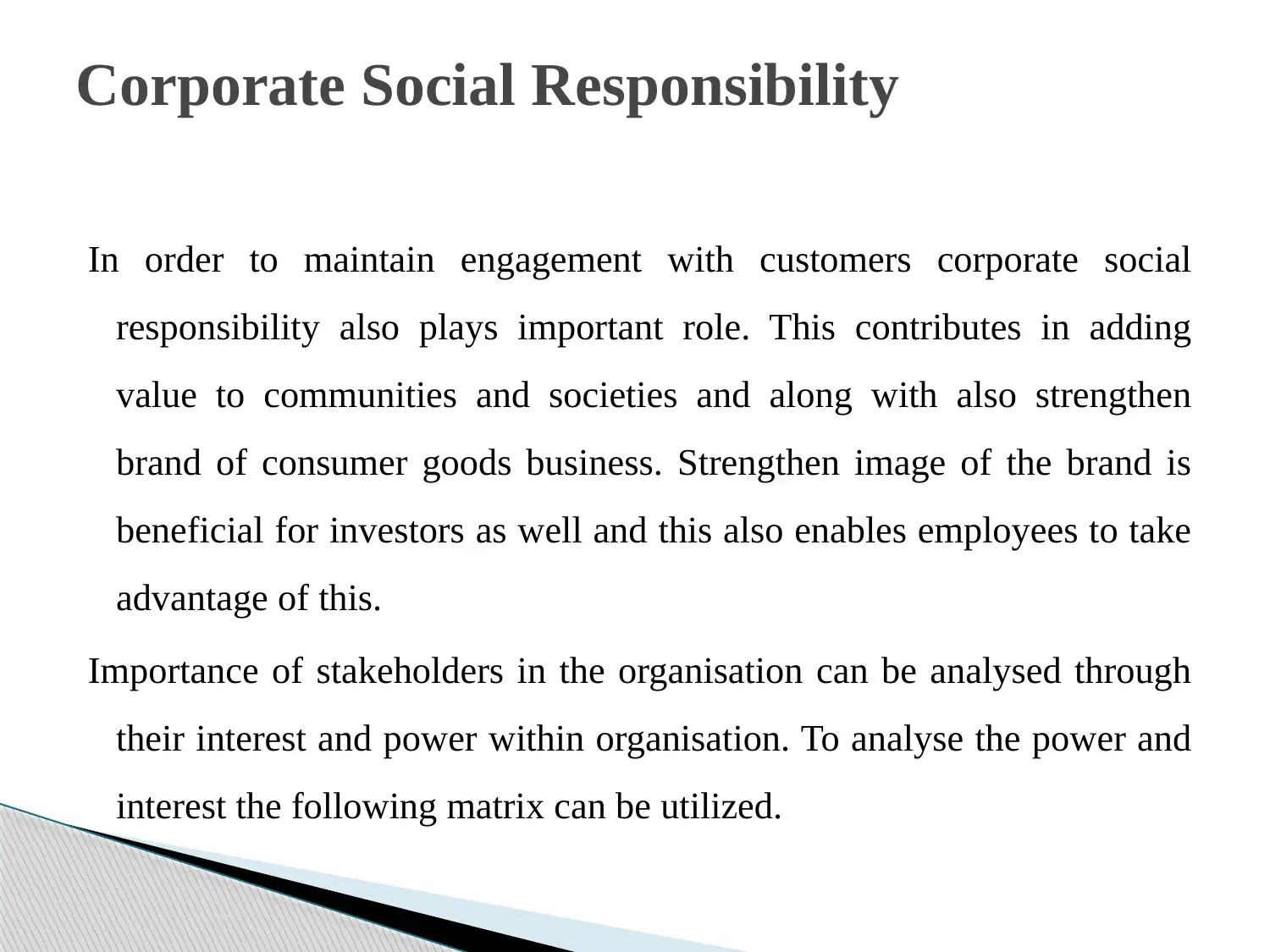
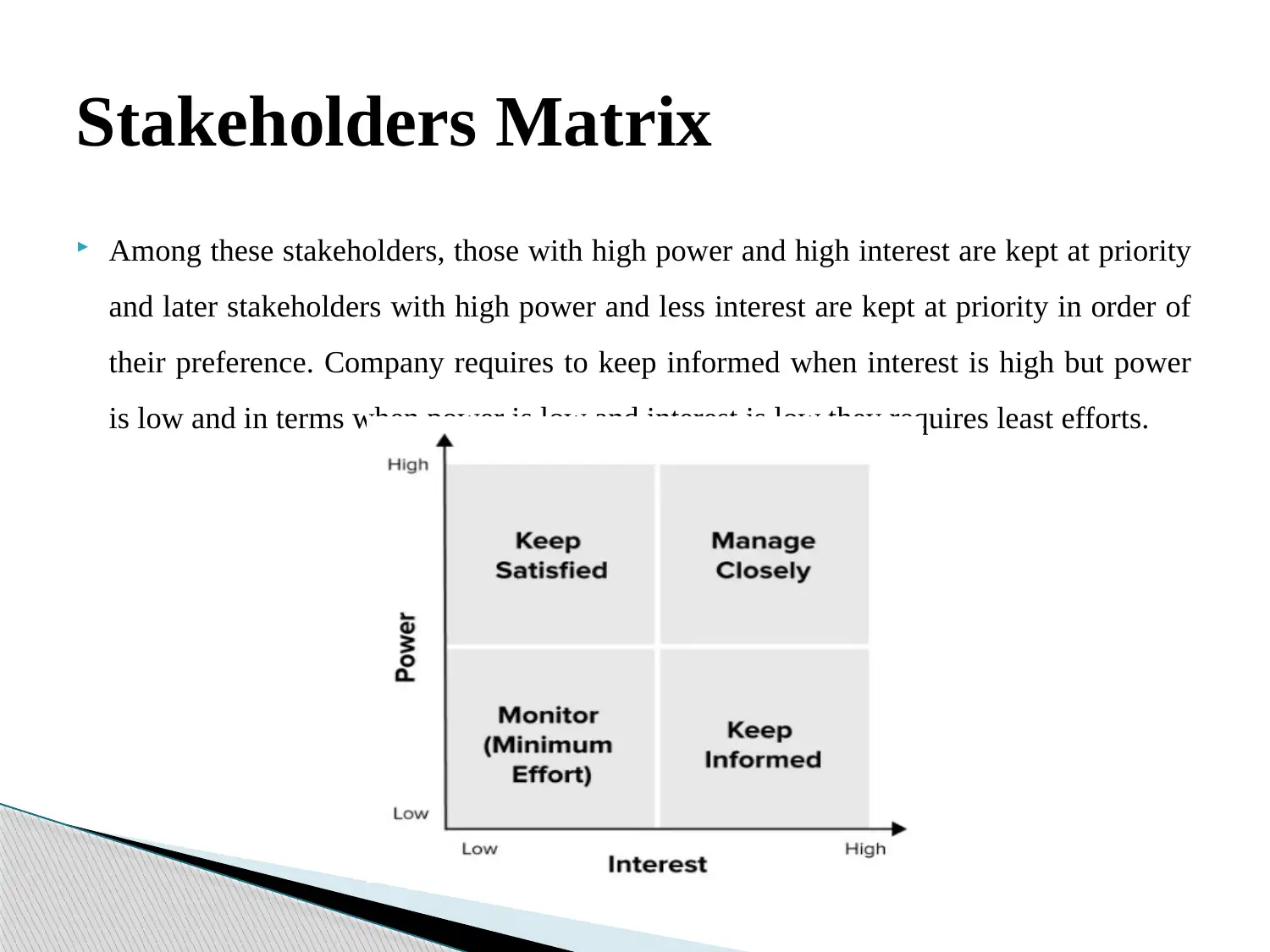
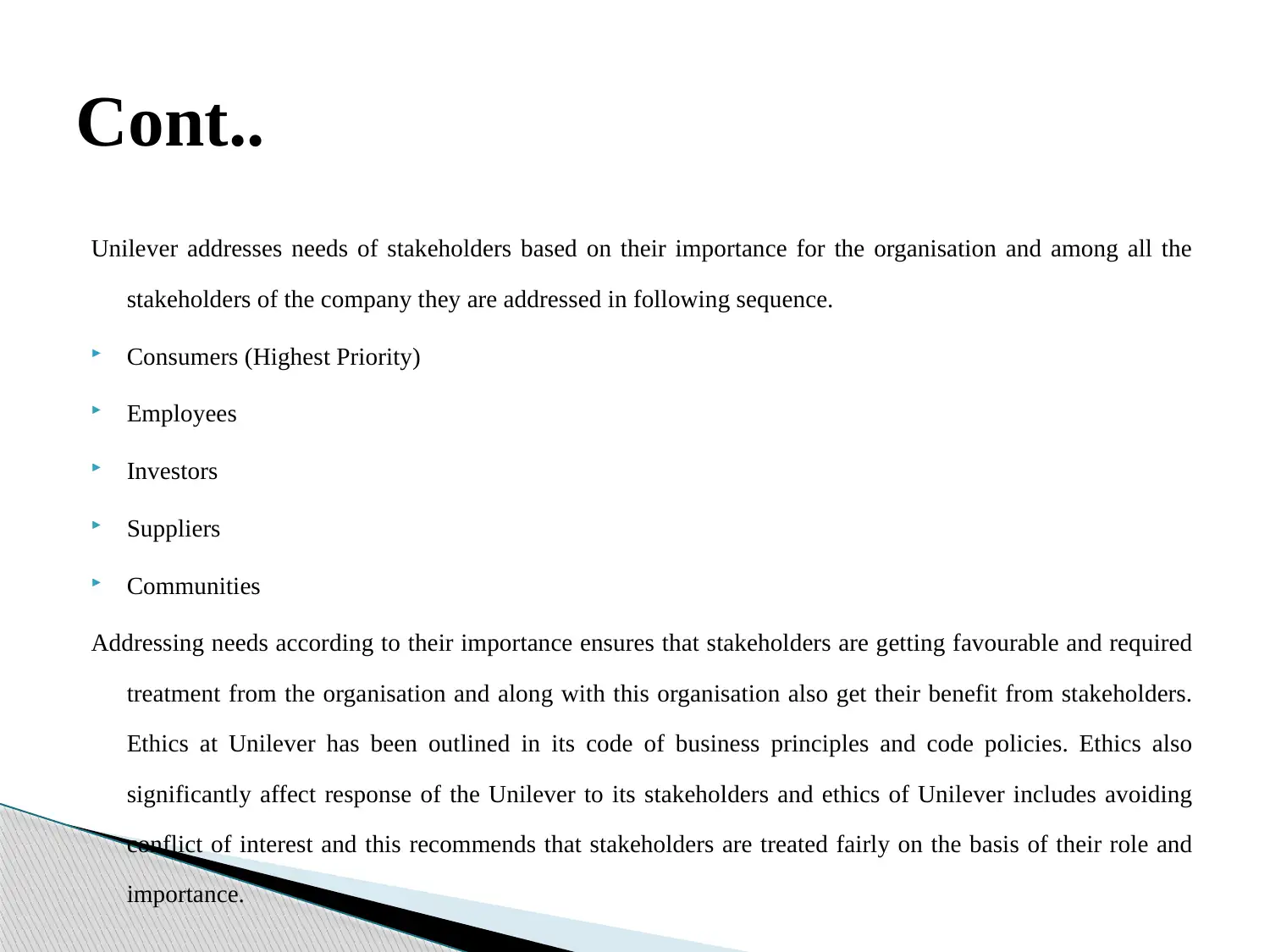
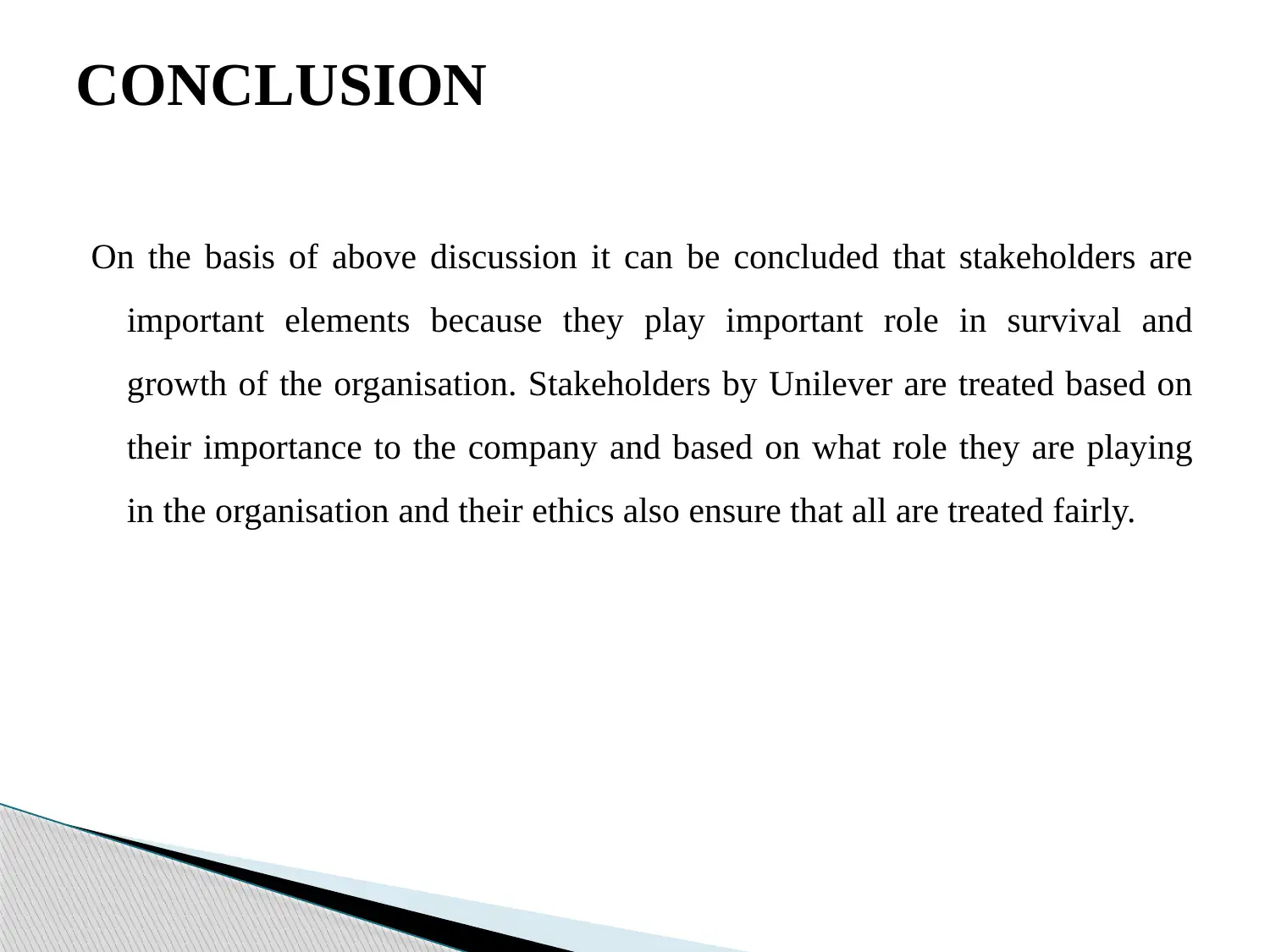
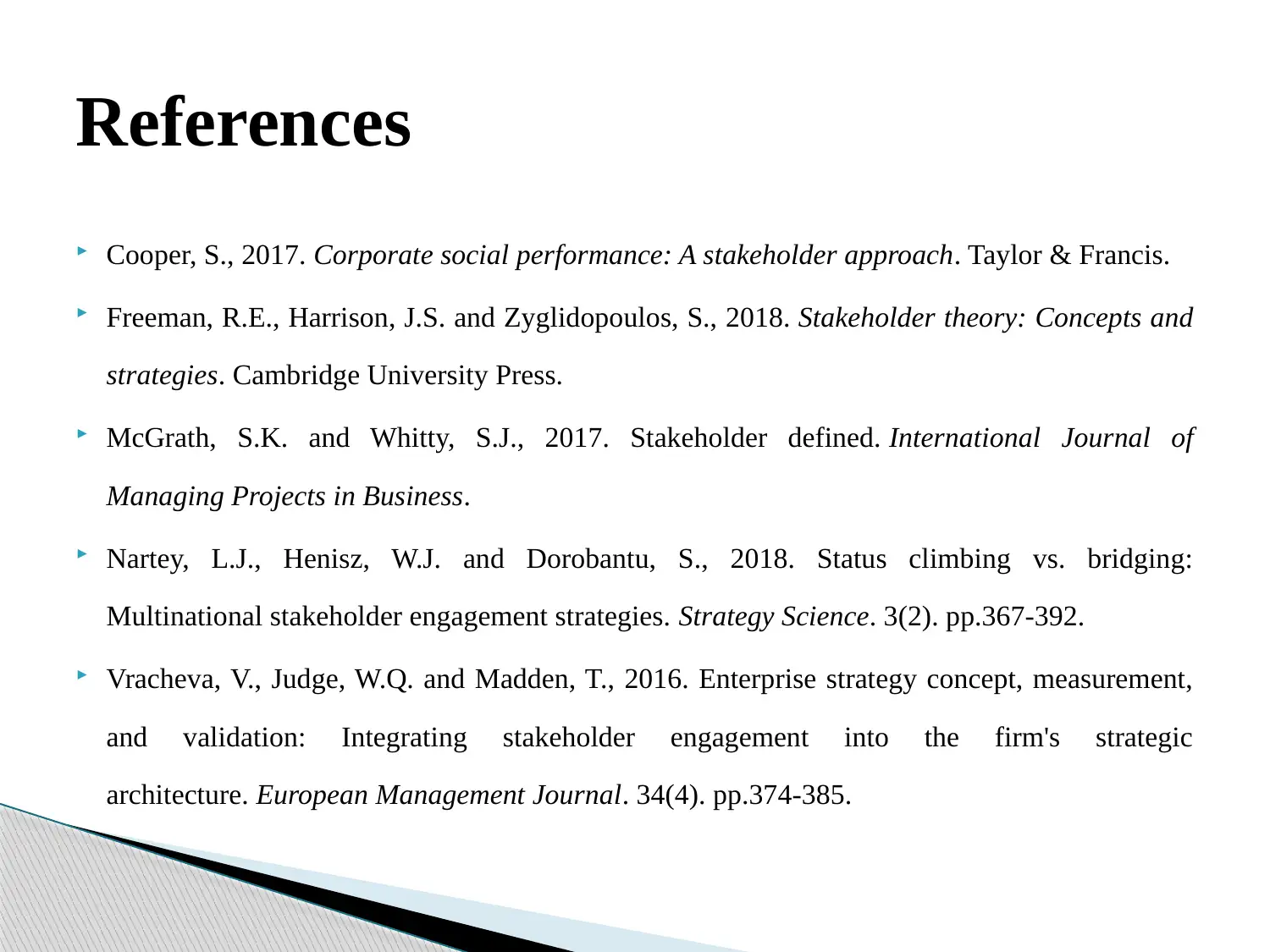







![[object Object]](/_next/static/media/star-bottom.7253800d.svg)